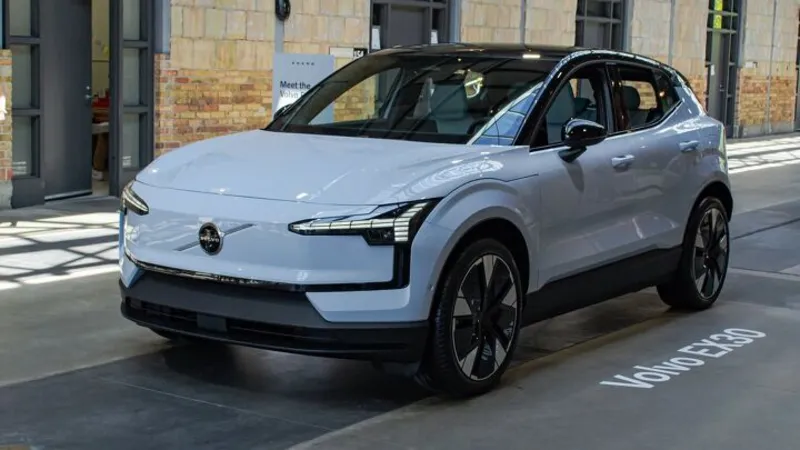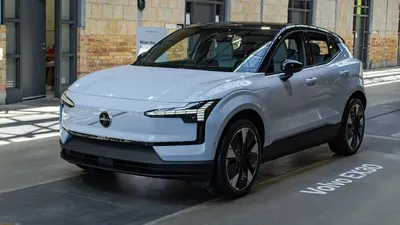Home > Articles > Automotive Trends
by Leland Morrison, on 9 October 2023


Why you should buy an electric vehicle in South Africa
Electric vehicles (EVs), such as the Volvo EX30 and the Volvo XC40 Recharge, are becoming more popular around the world as people seek to reduce their carbon footprint and save money on fuel. But what are the benefits and drawbacks of buying an EV in South Africa? Here are some points to consider before you make the switch.
Pros
EVs are cheaper to maintain and operate than conventional cars, as they have fewer moving parts and do not require oil changes, spark plugs, filters or belts. They also use electricity, which is cheaper than petrol or diesel per kilometer. Depending on where you charge you can save up to R1.20 per kilometre compared to a petrol car.
EVs produce zero tailpipe emissions, which means they do not contribute to air pollution or climate change. They also reduce noise pollution, as they are much quieter than combustion engines. On the other hand the production process doesn't seem to be without its sins, so the carbon footprint may just be moved earlier in the pipeline
The South African government is looking at ways to encourage the adoption of EVs. Although they did not specify details, some ways the government can offer rebates are offering tax breaks, subsidies, reduced import duties or preferential parking. Transport Minister Fikile Mbalula said that his department is working on a green transport strategy that will reward South Africans for buying EVs2.
EVs can deliver impressive speed and performance, thanks to their electric motors that provide instant torque and power. Some EVs can accelerate from zero to 100 kmh in less than 3 seconds, and reach top speeds of over 240 kmh. EVs also have lower center of gravity and better weight distribution, which improve their handling and stability. Moreover, EVs can benefit from advanced technologies such as regenerative braking, launch control and adaptive suspension, which enhance their efficiency and dynamics.
Cons
EVs are still more expensive to buy than comparable petrol or diesel cars, mainly due to the high cost of batteries and import duties. The most affordable full-size EV is the Mini Cooper SE, which costs R709 400. Most other EVs cost over R1 million, which puts them out of reach for many South Africans.
EVs have a limited driving range before they need to be recharged, which can vary depending on factors such as speed, terrain, weather and battery age. The average range of an EV in South Africa is about 300 km, which may not be enough for long-distance trips or rural areas. Moreover, the charging infrastructure in South Africa is still underdeveloped, with the nearest charging station only available at the local luxury car dealer.
Depending on the power source and the vehicle, charging an EV can take anywhere from 20 minutes to several hours or even days. A typical EV (60 kWh battery) can take about eight hours to charge from empty to full with a 7 kW Level 2 charger, which is the most common charging method. Level 1 chargers, which use a home outlet, can take well over 24 hours to fully charge an EV. Level 3 chargers, which are also known as fast chargers, can charge an EV to 80% in 20-60 minutes, but they are not widely available. Moreover, the charging speed decreases as the battery gets closer to full capacity, to prevent overcharging and damage.
Conclusion
Buying an EV in South Africa has its pros and cons, depending on your budget, lifestyle and expectations. While EVs offer lower running costs, environmental benefits and more choices, they also come with high upfront costs, limited range and infrastructure and lack of awareness and support. In our opinion it may be a few years still before it is a good time to buy an EV
More articles on Automotive Trends
The Rising Trend: Subcompact Luxury Cars